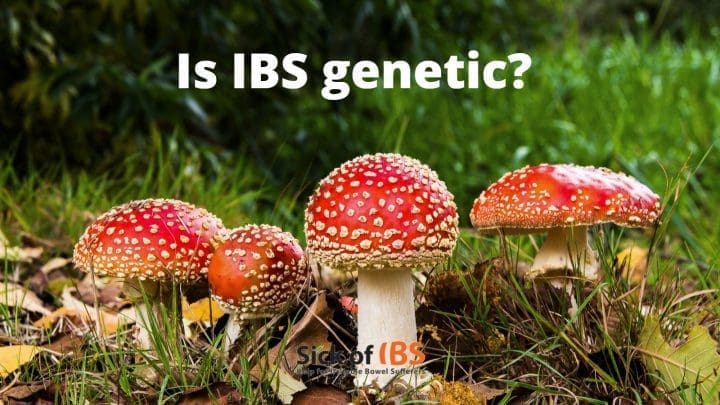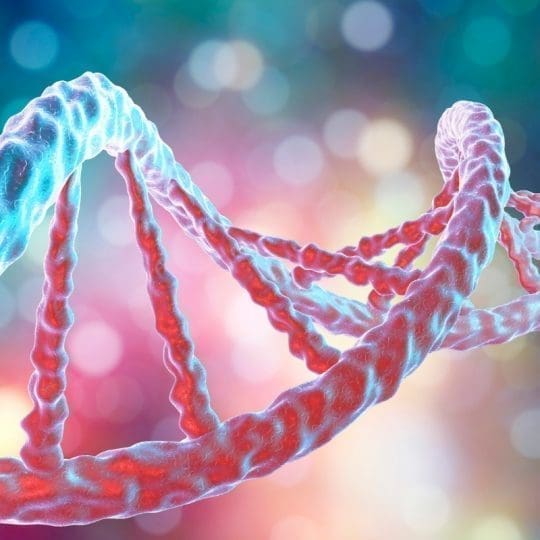
“Is IBS a genetic disorder, or hereditary?” is a question that comes up often. We all want to know WHY we have IBS, can IBS run in the family, and more importantly how we can get relief.
Is IBS genetic?
Can we be born with IBS? Some people have been told, or have come to believe, that their IBS is a genetic disorder.
They have one or several other family members that also suffer from digestive or bowel issues.
While this can feel reassuring in some ways, it is also a prison sentence. If IBS is genetic or hereditary, then it’s generally considered that you can do nothing about it. You’re stuck.
However, what if the question – and the answer, were a little deeper than that?
Is IBS genetic or hereditary? Research into epigenetics

Over the last few decades, research into the field of genetics and epigenetics has expanded, and new perspectives on our DNA have been revealed.
In the 1960’s and 70’s it was thought that genes controlled our character, and even our predisposition to disease.
Some 30 years ago, Bruce Lipton started to realise that there was more to the picture. As he experimented with cells, he found that the same stem cell could become, for example, a bone cell or blood cell depending on the stimulation of its environment.
According to him, and many subsequent researchers, there is control above and beyond the genes (epigenetic control). And for him there is no gene for diseases like cancer – as was previously thought to be the case.
In this documentary he states that “Our PERCEPTION of the environment changes genetic activity.”
So is IBS genetic? And can you be born with IBS? It’s unlikely.
This document from Harvard University specialists confirms that “experiences early in life cause epigenetic adaptations that influence whether, when and how genes release their instructions for building future capacity for health, skills, and resilience.”
Our perception of the environment and IBS

This ties into what I write about a great deal: IBS trigger situations.
In my own experience, and of that with clients, our perception of the environment, especially growing up, is key.
Anywhere we have had very strong experiences as a young child, or repetitive ones where we felt unsafe, these experiences shape our perception of experiences. And our beliefs about ourselves, as well as the world around us.
As adults we can continue to be triggered by situations that we once believed to be threatening.
Even if they aren’t any more!
This reaction has become unconscious and automatic to us. But the brain and the nervous system remembers. And it reacts every time, even if we have no recollection of the trigger.
So why do members of a same family have IBS?
Can IBS run in the family? Well, different members of a same family can have IBS.
So why is that, if it’s not genetic?
Family members are part of our environment. They have habits of thinking and doing, as we all do, that THEY picked up through their environment, family and exeperience of life.
And whether we realise it or not, at a young age, we are shown and easily take on the beliefs of our family. (After all, a belief is merely a thought we think over and over again.)
What is more surprising is that those beliefs can be expressed somatically (as physical symptoms).
The good news, brought to us by all the research in neuroscience and NLP (neuro-linguistic programming), and also in Bruce Lipton’s bestseller “The Biology of Belief“, is that we can change our belief systems.
Once we identify and understand our IBS triggers, we can change our response to them.
And get lasting relief from IBS!
2